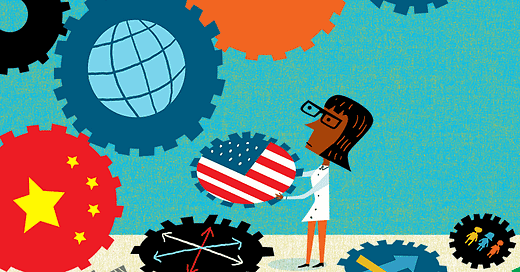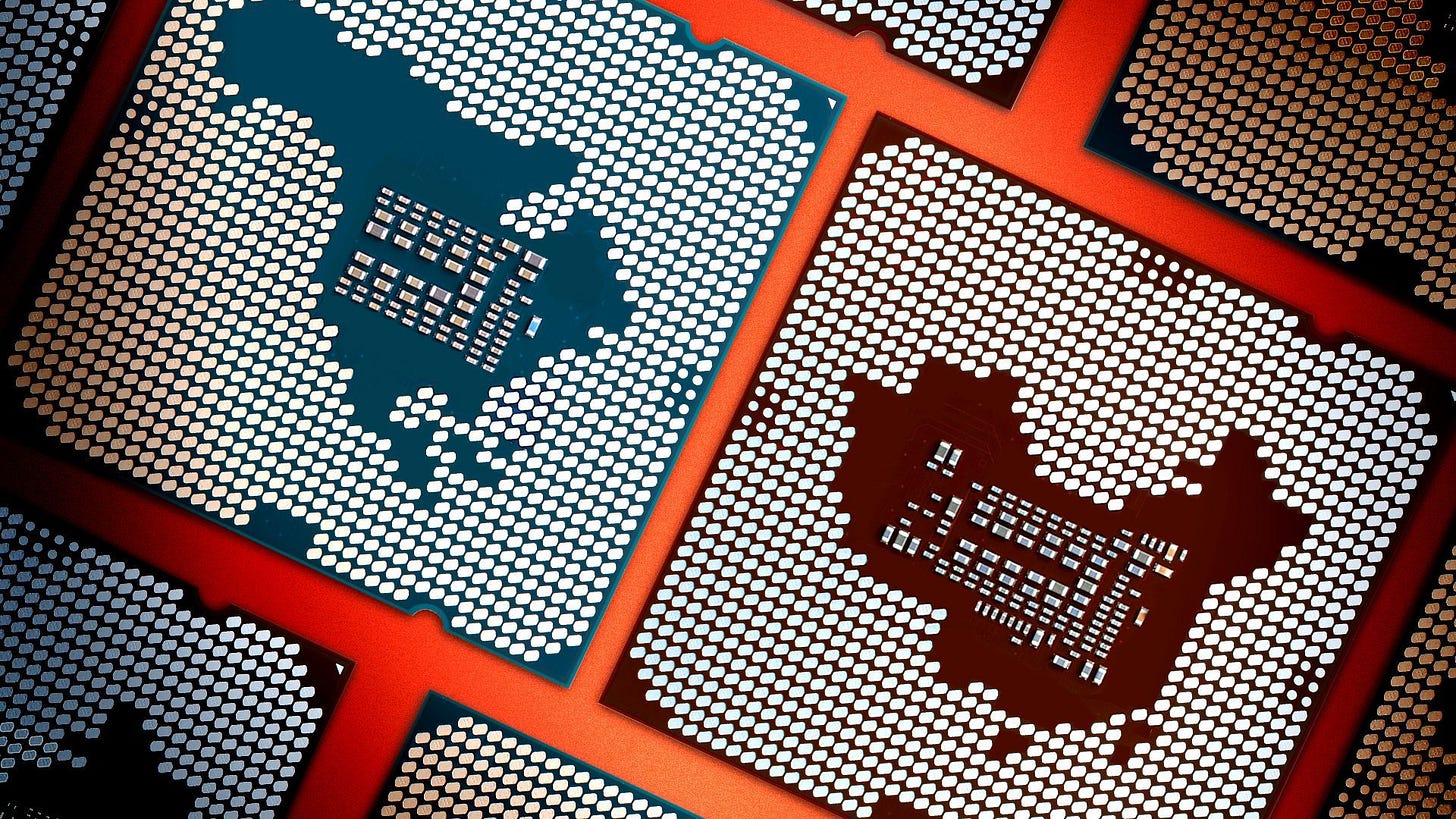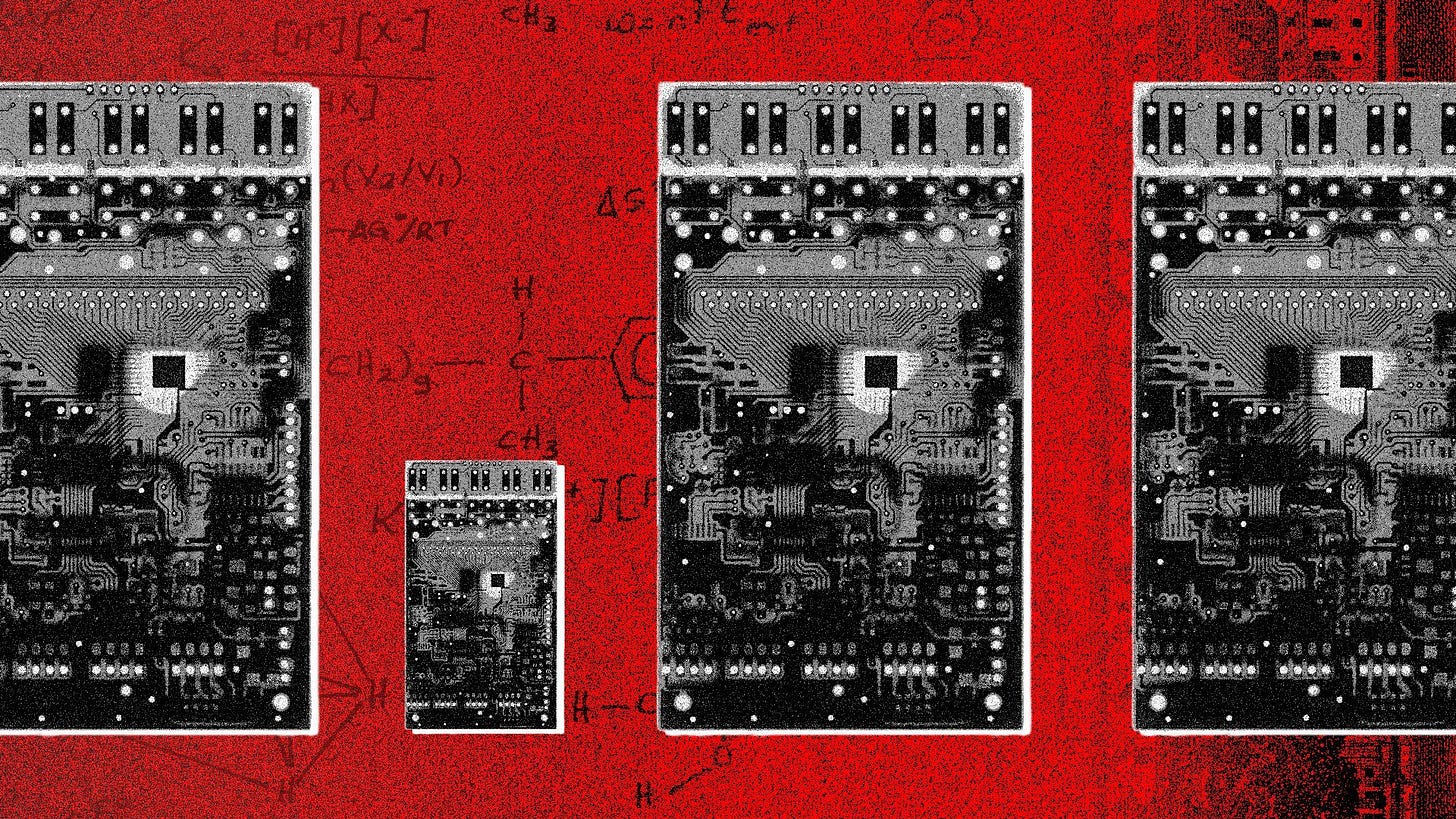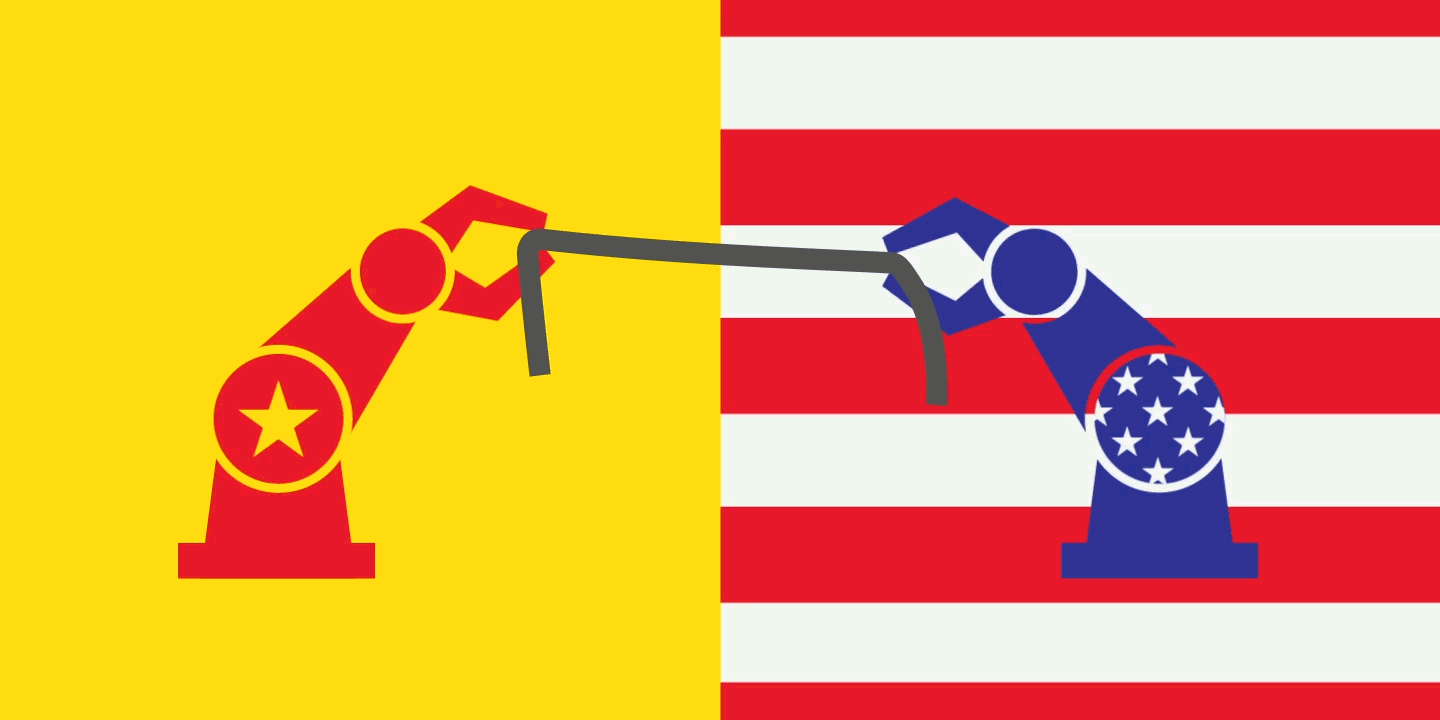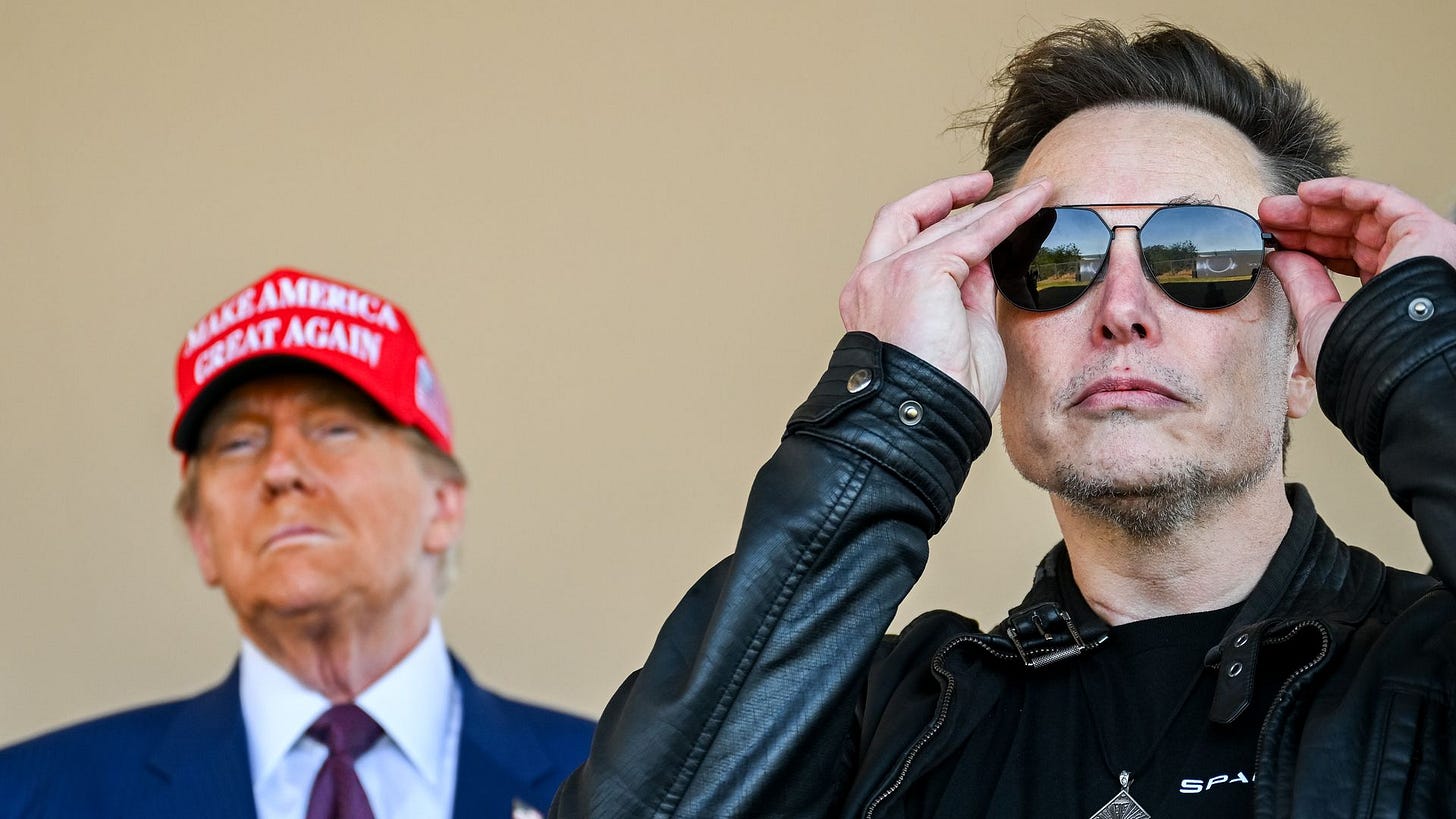AI: Outgoing Biden Administration's AI 'Unforced Error'. RTZ #600
...AI Diffusion Rules likely to have unintended negative consequences for US vs China
Seeing the Biden Administration execute an ‘Unforced Error’ AI/Tech policy in its last week before the incoming Trump administration, was not on my AI bingo card in this AI Tech Wave. Concerns have been there for days now, and I touched on it in my ‘Realpolitik’ to ‘RealTekPolitik’ essay yesterday. Especially in the context of the ongoing US/China geopolitical ‘threading the needle’ tussles around AI tech curbs and company engagements.
But today the Biden Administration did officially roll out their AI Diffusion Rule, which has negative short and long term impact in my view on the US’s widening global AI lead. Especially for the US big tech companies like Nvidia, OpenAI, Microsoft, Google, Meta, Amazon, Apple, Tesla and others, who are leading the charge.
Reactions from leading US Tech companies has of course been fast and furious. Here’re some from Nvidia and Oracle as examples.
Axios has a good summaries of the whole set of developments in “Biden ratchets up AI chip war with China”, and here:
“The Biden administration is readying dramatic last-minute steps to preserve a crucial advantage in its AI arms race with China: supply of the world's most advanced chips.”
The specifics are byzantine in terms of new friction points for leading US AI/Tech Companies:
“The Export Control Framework for AI Diffusion is the Biden administration's final swing at China's AI industry.”
“What's inside: The rule will create a new global licensing system for the most advanced AI technology exports.”
“Companies can continue to export to 20 allied nations freely. But they'll face some restrictions for non-allied countries and will be prohibited entirely from exporting to U.S. adversaries.”
“Supply chain activities are excluded so chips can move where they need to be packaged or tested.”
“Chip orders worth less than roughly 1,700 advanced GPUs total do not require a license and do not count against national chip caps. That allows for the vast amount of orders being placed, including by universities, medical institutions and research organizations.”
“To build data centers around the world, companies from the U.S. and certain partner countries will only need a single authorization from Commerce's Bureau of Industry and Security.”
The restrictions are not just on the AI hardware fronts:
“The new rules also aim to tighten security around the critical specifications for the most advanced frontier AI models.”
“The model weights for those models — essentially, the numbers that summarize the models' training and fine-tuning — are now barred from "transfer to non-trusted actors." The rule does not apply to open-source models.”
In some ways the outgoing administration may have been goaded into this action:
“Winners: China hawks on the Hill pushed the Biden administration to impose clear redlines in the name of national security and winning the tech race.”
“Losers: Nvidia, Oracle and industry groups say the rules will undermine American competitiveness and hinder innovation.”
And there is an forced definition of timelines on the perceived threat that are unreasonable given the accelerating and nascent stage of AI technologies worldwide:
“Threat level: A senior administration official said U.S. models are 6 to 18 months ahead of China's right now and "every minute counts."
Zooming out, the broader context if worth understanding:
“Why it matters: The chips needed to develop cutting-edge AI are the most valuable pieces of hardware on Earth, and the best chips Chinese firms can produce lag about five years behind the top end of the market.”
Problem is most of the critical AI chip production capabilities are with Taiwan Semiconductor in Taiwan, as I’ve highlighted before.
Axios then lays summarizes the ‘AI Diffusion’ rules being proposed:
“Driving the news: A pending executive order could cap sales of AI chips to countries all over the world, not just China, per the WSJ — with a particular focus on Southeast Asia and the Gulf.”
“Biden has already imposed limitations on the advanced chips that companies like Nvidia can export to China, but there are concerns that Chinese firms are able to buy or access them in other countries or from smugglers. There's a thriving black market for Nvidia chips in China.”
“The new order would attempt to close that back door. It could also further divide the world along technological lines, with some countries likely getting unfettered access to U.S. tech and others facing limitations.”
“Details of the rule, which is pending regulatory review, according to OMB's website, haven't been made public. But U.S. chipmakers and tech firms have been waging an intense behind-the-scenes campaign to prevent more restrictions.”
China which is the target here, is utterly focused on playing both offense and defense around these and other moves as I’ve discussed before, especially in the next big areas like AI driven cars and robots.
Axios explains:
“The fact that Chinese firms would "opt into a supply chain that involved putting chips in suitcases and smuggling them" is a clear sign of the Western edge in chipmaking, says Chris Miller, a professor at Tufts and author of "Chip War."
“The CEO of one of China's leading AI firms, DeepSeek, said this month that his primary constraint was not the vast sums needed for AI development, but access to high-end chips, Miller notes.”
“Breaking it down: The chips used to power AI development are mostly designed in the U.S. and fabricated in Taiwan, with chipmaking tools built in the U.S., Japan and the Netherlands.”
“Beijing has declared its determination to leapfrog the West in every facet of the semiconductor supply chain. For now, it's locked out.”
“The most advanced chips made by SMIC, the largest Chinese chip manufacturer, are on par with the top-end chips Taiwan's TSMC produced five years ago, Miller says.”
“The Western advantage in chipmaking tools (such as the extreme ultraviolet lithography machines built by Dutch firm ASML) is so vast that China has little chance of narrowing it over the next five years, says Miller.”
"Everything depends on what type of equipment the West is going to be willing to sell to China. If the restrictions are tight and get tighter, I have high confidence that the West retains its chipmaking lead," Miller contends.”
I recently discussed ASML’s critical role in all this a few days ago.
And China is not taking this and other US AI regulatory curbs lying down:
“The chip wars have been heating up during the Biden-Trump transition.”
“China fired a warning shot earlier this month after Biden's latest export controls were announced by opening an antitrust investigation into Nvidia, causing the $3.3 trillion behemoth's stock to wobble.”
“That came a week after China announced it was banning exports to the U.S. of key minerals used in chipmaking.”
“The tit-for-tat could continue to accelerate in Trump's second term, given that Biden has been tightening export controls that began during Trump's first term.”
The new administration and congress may have different views on what to do here and other fronts with China, in particular with input from Trump ally Elon Musk, who has deep views and interests in the subject.
“The intrigue: While Trump's administration-in-waiting is packed with China hawks, some incoming officials (including Trump himself) have indicated they also want to cut deals with Beijing. One piece of leverage in any such negotiations could be access to chips.”
“Meanwhile, Trump's former national security adviser Robert O'Brien argued Tuesday that Biden's looming executive order would "cede the AI market to China" and "drive a wedge between the U.S. and our partners."
“A Trump transition spokesperson did not say whether Trump agrees with O'Brien. The White House referred Axios' questions about the pending executive order to the Commerce Department, which declined to comment.”
China has some key things they can negotiate with in any set of Trump administration focused ‘transactions’ on AI and Tech:
“For now, China has three main points of leverage:”
“1. Its massive market:”
“U.S. chipmakers like Nvidia and Intel have designed chips for sale to China that fall just within the current regulations, a sign of their intent to continue to fight for market share in China.”
“But in addition to the new Nvidia probe, China has announced an investigation into Intel and unveiled a partial ban last year on Micron, the Idaho-based memory chip giant.”
2. “Its concentration of some of the elementary inputs for chips:”
“China cutting off supply of those minerals would have drastic implications for the global economy — but could be hard to execute without hurting China itself, give the global nature of semiconductor supply chains.”
3. “Its proximity to Taiwan:”
“The world's most advanced chips are made almost exclusively on an island around 100 miles off the Chinese mainland, which Beijing has vowed to bring under its control — potentially by military force.”
“Taiwan's TSMC claims to make 99% of the world's AI accelerator chips.”
And the US has been trying to accelerate diversification on where the chips are made, but it’s not big and timely enough:
“What to watch: TSMC is building a fabrication facility in Phoenix and has two more planned in the U.S. as part of a Biden push to onshore semiconductor production.”
“For now, though, "all AI progress depends on TSMC production in Taiwan remaining online," Miller says.”
There are other detailed takes of the Biden administration AI Diffusion policy that I can suggest for more detail and nuance.
But the core takeaway in my view, is that this latest outgoing move has more potential negatives than positives for the US, both in the short and long-term aspects of this AI Tech Wave. We’ll see how the new administration takes the ball forward after inauguration.
Especially since this proposed rule has three months of review time built in for the new administration. Stay tuned.
(NOTE: The discussions here are for information purposes only, and not meant as investment advice at any time. Thanks for joining us here)

